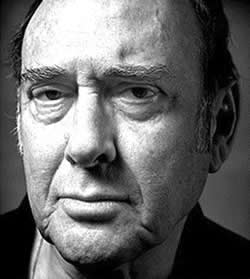
more and more just a punch line?
I suppose that since I'm just a blogger I'm not expected to know much about a journalist's responsibilities, but I do think I can improve on what New York Times executive editor Bill Keller can come up with. According to Ken Auletta, at the very end of his lightning-rod piece in this week's New Yorker, Keller has recently defended his publisher, Arthur Ochs Sulzberger, Jr., for his initial protectiveness of his star reporter, Judith Miller. Her stories in the months leading up to the invasion of Iraq was arguably one of the most important contributions to the administration's ability to take the country to war in 2003.
Keller is quoted with respect to his boss's readiness last February to go to the Supreme Court to protect Miller's sources and keep her out of prison [the paper later thought better of the idea after reviewing Miller's stories, dropped its aggressive stance, and eventually fired her after her release]: "Yes, Arthur was enthusiastically in favor of going to court. And so was I. In the much larger scheme of things, I'd much rather have a publisher whose first instinct is to stick up for a reporter rather than to drop into a defensive crouch and worry about his 'fiduciary' responsibilities."
I was outraged by this quote, especially as it must have been delivered as a statement of high moral principle.
How about another possible instinct, Bill? Shouldn't a newspaper be interested above all in "sticking up" for its readers? That doesn't mean encouraging the fantasies of its reporters or their sources, and it definitely doesn't mean supporting the fantasies of its editors or their publisher.
As we're finally seeing today even in the conventional/commercial media, Miller's stories were never the news and they were never fit to print.
But there's one story which appeared in the Times yesterday that certainly was! The trouble is, it should have been there a year ago. The "paper of record" wants to protect its reporters' right to protect their sources, but it won't use information it obtains from its sources unless the sources tell them it may. "Mother, may I"? Huh?
The Washington Post in a story filed on line late tonight, December 17:
The New York Times' revelation yesterday that President Bush authorized the National Security Agency to conduct domestic eavesdropping raised eyebrows in political and media circles, for both its stunning disclosures and the circumstances of its publication.The Daily Kos read it thus yesterday afternoon, December 16:In an unusual note, the Times said in its story that it held off publishing the 3,600-word article for a year after the newspaper's representatives met with White House officials. It said the White House had asked the paper not to publish the story at all, "arguing that it could jeopardize continuing investigations and alert would-be terrorists that they might be under scrutiny."
The Times said it agreed to remove information that administration officials said could be "useful" to terrorists and delayed publication for a year "to conduct additional reporting."
Whether Bush's secret order to eavesdrop on Americans constitutes an impeachable offense is debatable. Whether the New York Times has betrayed the American people is not.No, folks, we couldn't make this up, even as an exercise in journalism school.. . . .
If we are a nation destined to have a government-controlled media, then for fuck's sake, have Frist lead the charge to repeal the First Amendment and let's get it over with. But if we are to have that independent press protected by our Constitution and owed to the American people, then the New York Times must apologize. Not only to its readers, but to all of America for being complicit in this moral crime.
["Imperial" image from Social Design Notes]
